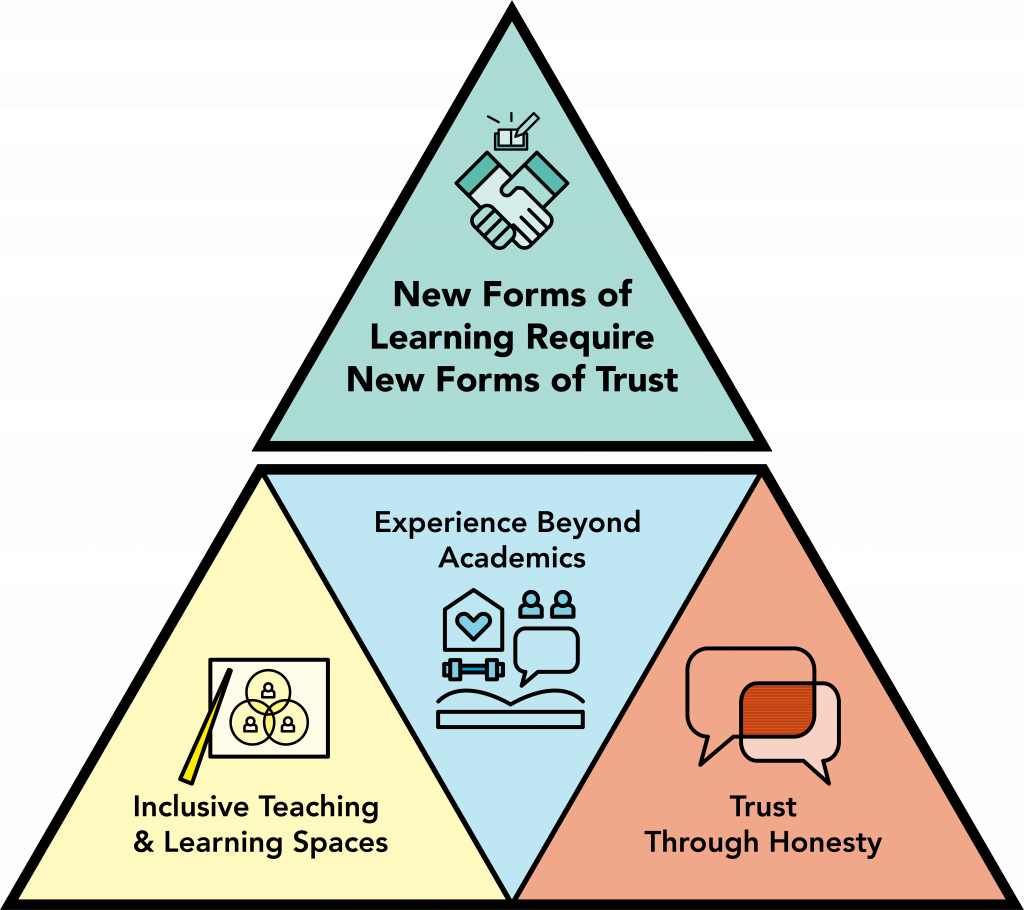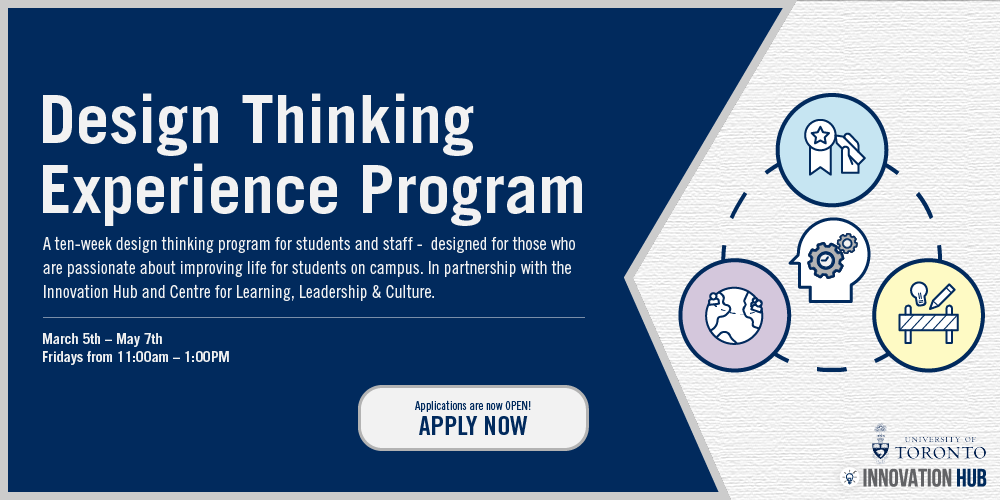Join us at Stories Through Research 2021!
A New Opportunity at the Innovation Hub!

Are you interested in working with us at the Innovation Hub in our leadership team? Do you have a passion for improving the student experience at UofT through innovation, research, and collaboration? Applications are now open for our Senior Research Assistant position!
Applications for the Design Thinking Experience Program are Now Open!
In March 2021, the Innovation Hub and the Centre for Learning, Leadership & Culture will launch a Design Thinking Experience Program (DTEP) for students and staff. Building on the success of the Innovation Hub’s student and staff DTEP bootcamps, this program will continue to address challenges in the student experience at UofT while providing participants with hands-on training in design thinking; moreover, it will bring staff and students together to encourage dialogue and broaden perspectives on what is possible at UofT.
The Varsity Spotlights Transforming the Instructional Landscape
Transforming the Instructional Landscape: Moving Towards Learner Centric Design in Times of Change
By Philippa Gosine, Senior Research Assistant

Through our user-centered consultations, we’ve realized that learning spaces are extremely personal and important places for the people that use them. Instructors and students have a strong sense of ownership over their classrooms and want to see their individual needs and preferences in the design of learning spaces.
Student & Youth Mental Health Research Initiative – The Student Advisory Committee
By Emma McCann – Engagement Lead & Kristin Cleverley – Chair, Student & Youth Mental Health Research Initiative


The Innovation Hub has been involved in a scope of conversations on mental health, wellness, and initiatives to support students. Most recently, our work with the Presidential & Provostial Taskforce on Student Mental Health shone a light on many needs in the community and has been a launch pad to important partnerships and initiatives to further support students at the University. We deeply understand how it’s so important to continue to highlight what is happening now in the community on student mental health and opportunities to be a part of these important conversations.
If you are a student and are passionate about improving campus mental health through collaborative research, we encourage reading this week’s special blog post on the Mental Health for Students & Youth Research Initiative!
*** Please note that the deadline to apply to this wonderful opportunity has been extended to January 11th, 2021! ***
How Online Learning can be Improved through Learner-Centered Design

Written by Nicholas Smith – Design Research Assistant for Transforming the Instructional Landscape
The COVID-19 pandemic greatly accelerated the integration of digital technology into instructional spaces, introducing discomfort and uncertainty into previously familiar terrain. Building on the healthcare concept of “patient-centred care,” this report proposes a model of “learner-centred design” as a means of contending with this discomfort in the implementation of new learning spaces. By putting users first, we hope to build learning spaces that empower instructors to experiment with new technology while meeting our users where they are—no matter if they are a technological expert or a complete novice.
‘What do you do at the Library?’ Call for Participation!
What Does Trust Look Like in Online Spaces? An Overview of TIL’s Latest Report

Written by Nicholas Smith – Design Research Assistant for Transforming the Instructional Landscape
As the UofT community continues to navigate the transition to online learning, maintaining bonds of trust amongst instructors, staff, and students has become increasingly important.
Students need to trust that the quality of their education is not being compromised and that the University can accommodate the diverse ways that COVID-19 has affected their lives. Similarly, instructors and AV technicians need to be confident that the University will support them with the many ways that their roles and daily working lives have changed.

